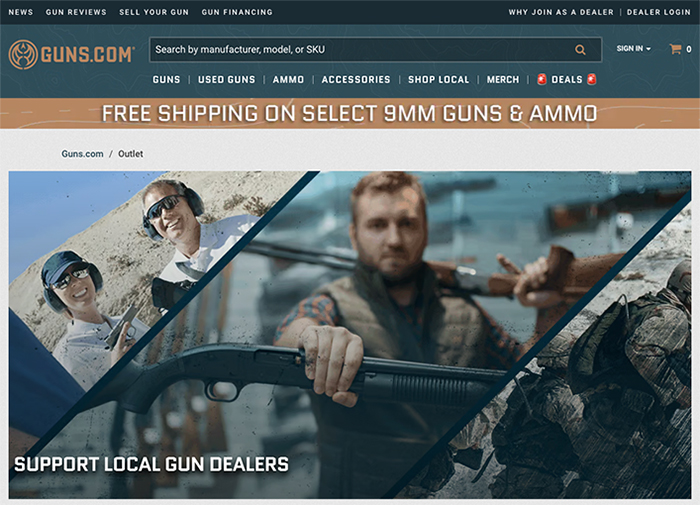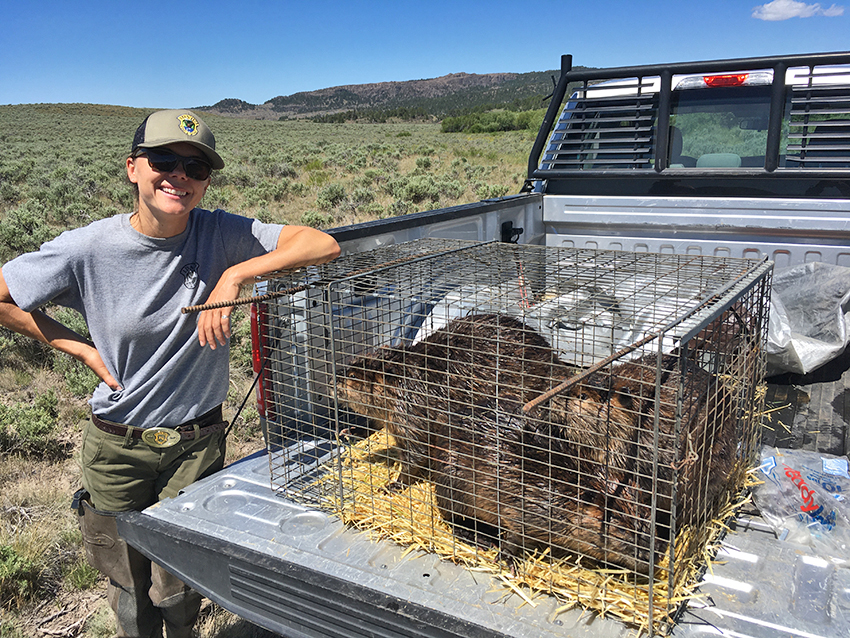Secrets Of Working With Agencies
Was 2022 a profitable and growing year for your brand or business? Great! The extra growth may mean looking outside for help on matters with marketing, advertising, public relations and social media. This outside help is most likely in the form of an agency — which can identify as a singular consultant, a boutique business with about 15–20 employees or a large business with several employees with multiple specialties.
There’s no wrong place on which to land for your business; it really depends on the budget and scope of work. However, there are things to work through that will ensure the success of any agency-client relationship.
Before Contacting An Agency
Sure, a quick Google search will land dozens of options for agencies in a particular area, but with the advent of Zoom meetings, consider the option of searching nationally — especially for a specific niche such as the gun industry. While our industry is big, it’s also small, so the best course of action is to ask colleagues for advice.
Nick Hoffman, host of “Nick’s Wild Ride” on the Outdoor Channel and a touring musician who has hired many agencies over his career, shared, “When I’m looking for an agency to work with or a consultant to help me with a particular thing, the first task I do is ask around to industry colleagues I trust for a referral. Typically, they’ll only suggest someone they have had a positive experience with and I’m less likely to waste time with a bad fit.”
Kim Emery, owner of Firefly Publicity and has worked as an in-house marketing manager and within advertising and public relations agencies, recommends considering a few things first in order to help choose the right size agency for your needs.
“Do you want to hire a big agency that can provide all of your marketing services under one roof, or do you want to hire experts who are focused on digital advertising or public relations, etc.?” she queried. “Will other clients with bigger budgets get the agency’s attention? Most importantly, do they understand your business and can they work with your internal team and other agency partners to create a cohesive plan in all communication channels?”
Tim Brandt, president of Murray Road Agency, who works with clients such as Silencer Central and Remington, suggested diving into those agencies and seeing who they have worked with — or are currently working with — and if it’s a good fit as far as values, brand and tone.
Emery concurs, “Just like you’d want to do a background check on a new hire, you may want to Google the agency owners to see if any issues come to light.”
“Agencies need to be apprised of changes at the company that can change agency direction or emphasis. For example, if supply chain constraints are changing product delivery timelines, let the agency know so they can change the timing of paid ads, social and PR — otherwise, you’re wasting money and frustrating consumers.”
Kim Emery, Owner
Firefly Publicity
Establishing Expectations
Brandt stressed having expectations and goals set before reaching out to agencies.
“Make sure you have tangible goals and metrics established that are aligned with your expectations so you can measure and manage success — or lack thereof,” he advised.
Oh yes, a lack of goals and expectations can ruin any great partnership, so it’s best to be clear right from the get-go. Hoffman said it well, “How can they [the agency] help you if they don’t know exactly what you need?”
The biggest mistake business owners make when hiring an agency is “figuring it out on the fly.” Meaning, calling the agency without knowing what is truly needed. Agencies can’t read minds and they also aren’t therapists. Talking through a business’s problems during a first meeting isn’t going to help crystalize the solution any better. In fact, it might raise a red flag for the agency. It’s best to sit down with key partners/internal staff to establish goals and KPIs (agency-speak for Key Performance Indicators) immediately.
“Sometimes you don’t know what you don’t know,” shared Jodi Stemler, owner of Stemler Consulting, which offers communication and policy expertise for the outdoor industry. “But if you want to engage with an agency, it means you’ve already identified an issue or an opportunity, and you need to have some sideboards to help guide the conversation.”
When establishing a working partnership, Hoffman stressed not to be afraid to ask an agency how they communicate and operate.
“Do they check in with you daily, weekly, monthly? How do they report back to you what they have been doing on your behalf and the progress they have made? Everyone, on both sides, operates differently. Just because they have the qualifications you need might not mean you’ll work well with them or they’ll fit into your system,” he said.
Pitfalls To Avoid
The agency-client relationship is like any other partnership; it must have clear communication, solid goals and expectations, trust and honesty. On paper this sounds nice, but the reality can be different. For example, hiring a New York City agency sounds impressive and will certainly show competitors you mean business, but is it necessary?
Hoffman shares his experience: “I try to avoid huge agencies that have high-profile clients. These types of organizations aren’t tailored for smaller businesses like mine, and I often feel like I get handed to a junior associate where I get lost in the mix. This isn’t always the case, but I can’t afford to chance wasting my limited budget on someone who doesn’t have time to focus on a little guy. On the flip side, beware of hiring someone who is too small and is overwhelmed with clients. They might not be able to offer you the kind of attention you want. Or, they may not have the experience you need to deliver what you need.”
Another pitfall is ensuring the business has the internal staff to assist the agency.
“One major consideration to make when you’re ready to hire an agency is can you/your team manage, facilitate and enable them in a way that benefits everyone? Agencies shouldn’t add substantial time to your day and need to be turnkey extensions of you/your team’s efforts. But there’s going to be a lift from the business to onboard, manage and communicate with the agency,” Brandt explained.
In other words, don’t assume once the contract is signed your part in this is over — in fact, it has just begun.
“For pitfalls to avoid, everything comes back to communication and when there are different expectations on who is doing the work,” shared Stemler. “Is the agency doing the detail work for you? Or are you that person? Keep in mind if the agency is doing the detail work, there will be hours marked to that.”
Detail work can be anything from finding photos for your revamped website to writing your bio to giving the company’s history timeline. Entire projects have been held up because the agency is waiting on the client for these small — but meaningful — details.
After The Contract Is Signed
After the establishment of a working relationship, Emery stressed setting regular meeting cadences.
“Agencies need to be apprised of changes at the company that can change agency direction or emphasis,” he noted. “For example, if supply chain constraints are changing product delivery timelines, let the agency know so they can change the timing of paid ads, social and PR — otherwise, you’re wasting money and frustrating consumers.”
Brandt agrees: “Communication also needs to be fluid, dynamic and informative. If you have a PR agency, make sure they can see/gain insights into what you’re doing in an area like social (or content, owned marketing channels, etc). You don’t need to give up proprietary information or drag your agency into multiple meetings. But arming the agency with simple ‘look-ins’ into other areas of your marketing efforts will enable them to ensure what they’re doing for you is in alignment with what you’re doing elsewhere. And it should be a win for everyone involved.”
Hoffman also agreed regularly scheduled meetings are great, but also to set time to talk about other things than business.
“Getting to know the people who are working for you will go a long way toward getting the most productivity from an agency for the money you spend,” he proposed.
The agency-client relationship is like any other partnership: it must have clear communication, solid goals and expectations, trust and honesty.
Closing Thoughts
Finding the right time to engage an agency is a balancing act. Too soon might mean paying for a monthly retainer that isn’t being utilized — or too late means putting the agency at a disadvantage because everything must be done now.
It’s also a huge leap financially. Hoffman said he realized the time to hire was when he started dropping balls in some parts of his business because he was overwhelmed in other areas.
“This is often a tough pill to swallow, to realize you can’t do it all, but it’s always worth it in the end. You need to find help where you are weak in order for you — and the business — to grow,” he concluded.






